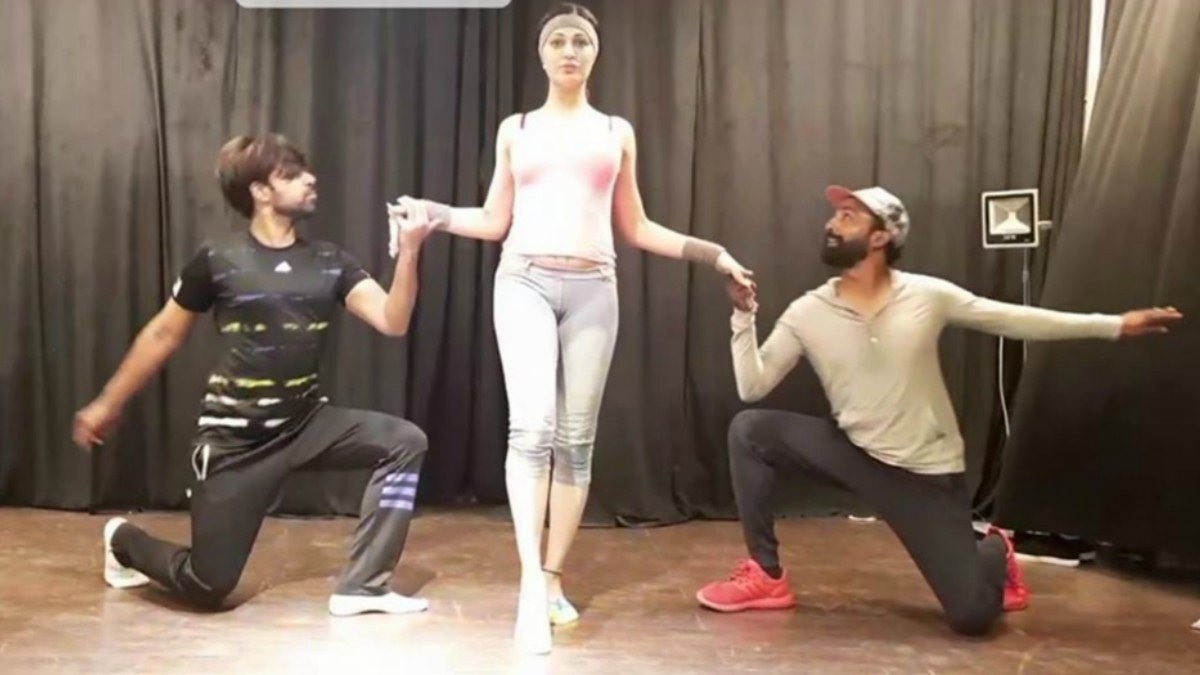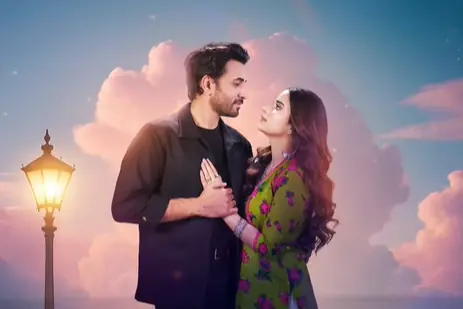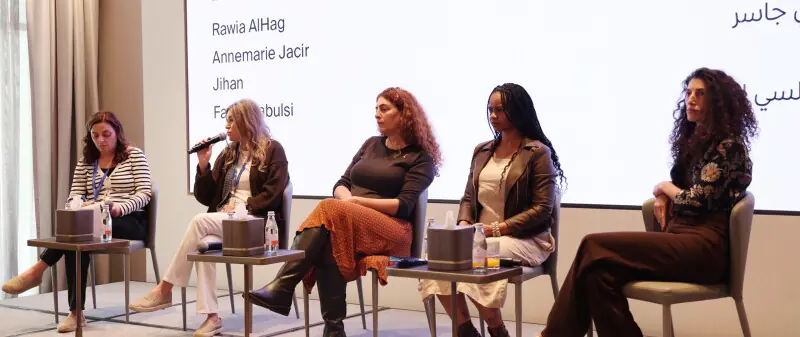It's tragic that transgender people are always portrayed in a funny way on TV, says Rimal Ali
When Rimal Ali was told that some people from a film wanted her number, the first question she asked was: are they nice people?
The film in question was 7 Din Mohabbat In (7DMI). I met her when she was in Karachi dubbing for her role in the movie. Rimal is tall and breathtakingly beautiful in person, with perfect, glowing porcelain skin. Although she’s quite soft-spoken, Rimal talks with clarity of thought and doesn’t mince her words.
Well, were ‘they’ nice? “Yes,” she responds with a smile. “Fasih Bari is the writer and he probably felt I fit the character he had in mind better than some of the other people of my gender that they auditioned in Karachi.”
The one thing Rimal is hoping 7DMI will do is change how people see and perceive members of her community — Rimal is a transgender female. Despite working in the industry as a model and a theatre performer for many years, Rimal had just made her mark on the entertainment scene through her appearance in the music video of 'Dhola' by the band Soch. In it, she plays a sex worker who changes her appearance to become the woman her clients want. At the end of it, she’s rich, but alone. The lesson being that money alone can’t buy happiness.

Did she have to go through an audition for the film? “No, they had seen the music video,” she says. “But I did have to go through a screen test which all of the artists in the film had to do. We went to Nabila’s to get our hair and make-up and finalise our looks … but initially I felt my look wasn’t according to my role — the make-up was quite harsh.”
The one thing Rimal is hoping 7DMI will do is change how people see and perceive Pakistan's transgender community
In the trailer of the film Rimal is seen dancing in a glittering outfit on stage. Perhaps they did that make-up because it looks like she’s a performer?
“My character is a bar dancer — a club dancer,” she clarifies. “But you know what? The whole world knows Sunny Leone is a porn star but she doesn’t come across as a porn star on screen. She never wears loud make-up that would make her look cunning or manipulative. The stylists understood what I was trying to say: too much make-up doesn’t look nice. I told them to do soft make-up on me to give me that, you know, ‘cute’ look. You will love my look in the movie.”

What was the hardest part of the film for her? “Recording that dance number!” she laughs. “When they picked me, dono directors ne mujh se bohat sakht kaam liya [both directors made me work extra hard]. They probably thought that ‘She’s this big dancer in her head, so we’ll make her do those steps and dance so much that uss ko bhi ek dafa tobah karni parey’[that even she will think twice]!
“We did 19 hours of continuous recording!” she adds. “And the other day 20 hours! The reason my time would end up becoming so long was because it would take four hours just to do my make-up. By the end of it, you’re already tired. After that, you go on set and do the same song over and over and over again.
“I had bruises on my legs because the outfit by Sania Maskatiya was paired with hot pants made from raw silk, and that [rubbing against my skin for hours] gave me bruises. [If it had been] cotton or any other stretchable material, it doesn’t do that.”
Despite the difficulties, she needed to make the song work. “Wahab and Nigar Hussain told me that the audience watching you in the three- to-four-minute song don’t know what Rimal is going through — how tired she is, or how hard she’s worked,” she says. “In those three or four minutes if even for one second you don’t have the right expression or you let go then the song of yours will get wasted.”
“I have a very strong role in 7DMI. It’s not like, in order to make the film a hit, we just suddenly put an item number in it, it is the demand of the movie." - Rimal Ali
She is quick to point out that there is more to her character. “I have a very strong role in 7DMI,” says Rimal. “It’s not just an item number, it’s a role connected to an item number. It’s not like, in order to make the film a hit, we just suddenly put an item number in it, it is the demand of the movie. We needed a dance number at that point in the film. And then the rest of the story continues from there.”

According to her, good representation, especially in the media, is important. “Mujhay bara almiya lagta hai ke hamesha transgenders ko le ke funny batein hoti hain TV pe. [I think it’s quite tragic that when it comes to transgenders, they’re always portrayed in a ‘funny’ way on TV],” she says. “Any role [in film or TV] or even in talk shows, whenever they portray a transgender, to woh sirf mazak ki hudd tak hota hai [It is only to induce laughter].
“Getting disowned by your family, by society and then the whole world … getting kicked out of your home when you’re a child, suffering constant abuse and knowing that you can never get married, have a family, child or life partner … I don’t find anything funny in it.”
Rimal takes a moment before continuing. “Before doing this film, I asked who wrote the film?” she relates. “They told me it’s been written by Fasih Bari and that ‘You know what a sensitive writer he is. He’s not going to turn your character into a joke. We are taking this seriously.’
“And that’s what happened. There is a very strong scene in the film, which you will see, in which Sheheryar Munawar’s character gets tested.” And does he pass that test? “Yes,” she responds, grinning widely.

Does she think the attitude and the environment for the transgender community is changing in Pakistan? “Yes, we are moving forward,” says Rimal referring to a member of her community that was recently taken on as a newscaster by a local network. She refers to the success of Kami Sid, saying that that all three of them chose an educated way to come forward.
“[Because] Representation is very important,” she says firmly. “We cannot only dance or go into prostitution. Why sell your body when you have a brain? I found out recently, on a programme called Zara Hat Ke, that there are transgenders working in banks and offices, and I am very happy to hear that.
“The people that are educated, they’re shining. The tragedy is that when children are disowned in their childhood, how can they get an education? Your emotional state is very traumatised and fragile. You’re very broken. Despite that I did my B.Com. I did my graphic designing diploma from Punjab University.
“When people saw the teaser [of the film], they reached out to me and said, ‘You were right’. They used to say to me ‘Rimal only thinks that she will do something big, but it’s never going to happen’. Now they’re saying, ‘You showed us. It happened’.”
Originally published in Dawn, ICON, June 10th, 2018











Comments